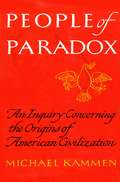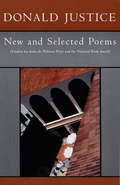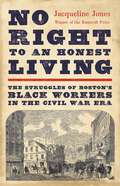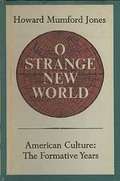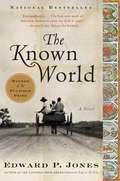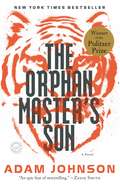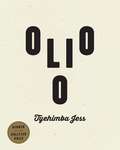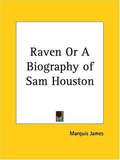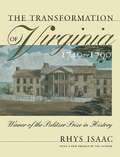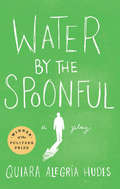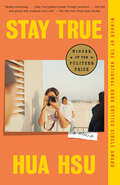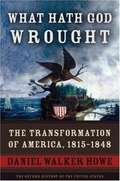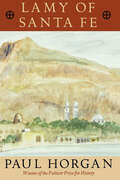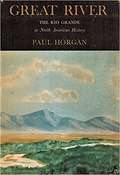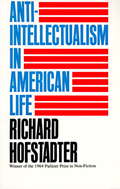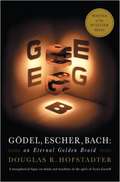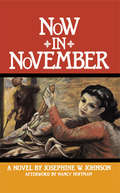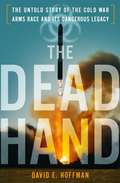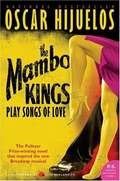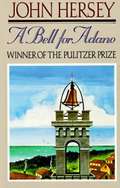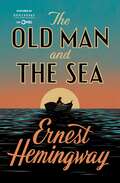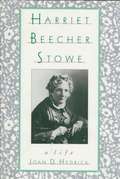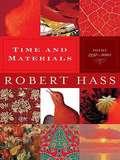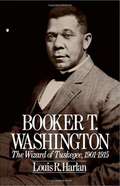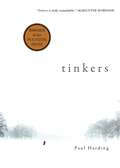Special Collections
Pulitzer Prize Award Winners
Description: Bookshare is pleased to offer the following titles, winners of the Pulitzer Prize Award. Note: Some drama winners are available and are listed under Fiction awards. #award
- Table View
- List View
People of Paradox
by Michael KammenFrom the beginning, what has given our culture its distinctive texture, pattern, and thrust, according to Michael Kammen, is the dynamic interaction of the imported and the indigenous. He shows how, during the years of colonization, some ideas and institutions were transferred virtually intact from Britain, while, simultaneously, others were being transformed in the New World. As he unravels the tangled origins of our culture, he makes us see that unresolved contradictions in the American experience have created our national style. Puritanical and hedonistic, idealistic and materialistic, peace-loving and war-mongering: these opposing strands go back to the genesis of our history.
Pulitzer Prize Winner
New and Selected Poems
by Donald Justice"He is one of our finest poets, " Anthony Hecht has said of Donald Justice. Winner most recently of a 1996 Lannan Literary Award, Justice has been the recipient of almost every contemporary grant and prize for poetry, from the Lamont to the Bollingen and the Pulitzer. The present volume replaces his 1980 Selected Poems and contains, in addition, poems from the last 15 years.
Pulitzer Prize Winner
No Right to An Honest Living (Winner of the Pulitzer Prize)
by Jacqueline JonesWINNER OF THE PULITZER PRIZE IN HISTORY A &“sensitive, immersive, and exhaustive&” portrait of Black workers and white hypocrisy in nineteenth-century Boston, from &“a gifted practitioner of labor history and urban history&” (Tiya Miles, National Book Award-winning author of All That She Carried) Impassioned antislavery rhetoric made antebellum Boston famous as the nation&’s hub of radical abolitionism. In fact, however, the city was far from a beacon of equality. In No Right to an Honest Living, historian Jacqueline Jones reveals how Boston was the United States writ small: a place where the soaring rhetoric of egalitarianism was easy, but justice in the workplace was elusive. Before, during, and after the Civil War, white abolitionists and Republicans refused to secure equal employment opportunity for Black Bostonians, condemning most of them to poverty. Still, Jones finds, some Black entrepreneurs ingeniously created their own jobs and forged their own career paths. Highlighting the everyday struggles of ordinary Black workers, this book shows how injustice in the workplace prevented Boston—and the United States—from securing true equality for all.
O Strange New World
by Howard Mumford JonesDescribes the discovery, the invention, the definition, and the self-realization of America, and the elusive sense of the wonder and excitement of the unveiling of a new world.
Pulitzer Award winner.
The Known World
by Edward JonesThe Known World tells the story of Henry Townsend, a black farmer and former slave who falls under the tutelage of William Robbins, the most powerful man in Manchester County, Virginia. Making certain he never circumvents the law, Townsend runs his affairs with unusual discipline. But when death takes him unexpectedly, his widow, Caldonia, can't uphold the estate's order, and chaos ensues. Jones has woven a footnote of history into an epic that takes an unflinching look at slavery in all its moral complexities.
Winner of the 2004 Pulitzer Prize for fiction and the 2003 National Book Critics Circle Award for Fiction. Finalist for the 2003 National Book Award for Fiction.
The Orphan Master's Son
by Adam JohnsonPak Jun Do is the haunted son of a lost mother—a singer “stolen” to Pyongyang—and an influential father who runs a work camp for orphans. Superiors in the North Korean state soon recognize the boy’s loyalty and keen instincts. Considering himself “a humble citizen of the greatest nation in the world,” Jun Do rises in the ranks. He becomes a professional kidnapper who must navigate the shifting rules, arbitrary violence, and baffling demands of his overlords in order to stay alive. Driven to the absolute limit of what any human being could endure, he boldly takes on the treacherous role of rival to Kim Jong Il in an attempt to save the woman he loves, Sun Moon, a legendary actress “so pure, she didn’t know what starving people looked like.”
Part breathless thriller, part story of innocence lost, part story of romantic love, The Orphan Master’s Son is also a riveting portrait of a world heretofore hidden from view: a North Korea rife with hunger, corruption, and casual cruelty but also camaraderie, stolen moments of beauty, and love.
Olio
by Tyehimba JessWinner of the 2017 Pulitzer Prize in Poetry
Winner of the 2017 Anisfield-Wolf Book Award in Poetry
Winner of the 2017 Book Award from the Society of Midland Authors for Poetry
2016 National Book Critics Circle Award finalist for poetry
2017 PEN/Jean Stein Book Award finalist
2017 Kingsley Tufts Poetry Award finalist
Named a top poetry book of spring 2016 by Library Journal
Part fact, part fiction, Tyehimba Jess's much anticipated second book weaves sonnet, song, and narrative to examine the lives of mostly unrecorded African American performers directly before and after the Civil War up to World War I. Olio is an effort to understand how they met, resisted, complicated, co-opted, and sometimes defeated attempts to minstrelize them.
The Raven
by Marquis JamesThis work tells the tale of Sam Houston: United States Senator; military hero; protégé of Andrew Jackson and Tennessee's Young Man of Destiny; General and President of the Texas Republic; Ambassador of the Cherokee Nation of Indians and adoptee of the Cherokee people; and as trouble brewed with Mexico, he was chosen commander in chief of the Texan provisional government.
Pulitzer Prize Winner
The Transformation of Virginia, 1740-1790
by Rhys IsaacIn this Pulitzer Prize-winning book, Rhys Isaac describes and analyzes the dramatic confrontations--primarily religious and political--that transformed Virginia in the second half of the eighteenth century. Making use of the observational techniques of the cultural anthropologist, Isaac vividly recreates and painstakingly dissects a society in the turmoil of profound inner change.
Water by the Spoonful
by Quiara Alegría Hudes"Hudes brilliantly taps into both the family ties that bind as well as the alternative cyber universe. . . . Her dialogue is bright, her characters, compelling. . . . It's only when cyber meets the real world that anger gives way to forgiveness and resistance becomes redemption; the heart of the play opens up and the waters flow freely."-Variety"A very funny, warm and, yes, uplifting play with characters that are vivid, vital and who stay with you long after the play is over."-Hartford Courant"Ms. Hudes possesses a confident and arresting voice."-The New York TimesWinner of the 2012 Pulitzer Prize for Drama, Quiara Alegría Hudes's drama is a heartbreaking, funny, and inspiring account of the search for family in both conventional and unconventional places.Somewhere in Philadelphia, Elliot has returned from Iraq and is struggling to find his place in the world, while somewhere in a chat room, recovering addicts forge an unbreakable bond of support and love. The boundaries of family and friendship are stretched across continents and cyberspace as birth families splinter and online families collide.Water by the Spoonful is the second installment in a trilogy of plays that follow Elliot, a young veteran of the Iraq War. The trilogy's first play, Elliot, A Soldier's Fugue, was a finalist for the 2007 Pulitzer Prize and will be published by Theatre Communications Group concurrently with Water by the Spoonful. The trilogy's final play, The Happiest Song Plays Last, premiered in April 2012 at Chicago's renowned The Goodman Theatre.
Stay True
by Hua HsuPULITZER PRIZE WINNER • NEW YORK TIMES BESTSELLER • A gripping memoir on friendship, grief, the search for self, and the solace that can be found through art, by the New Yorker staff writer Hua Hsu&“This book is exquisite and excruciating and I will be thinking about it for years and years to come.&” —Rachel Kushner, New York Times bestselling author of The Flamethrowers and The Mars RoomIn the eyes of eighteen-year-old Hua Hsu, the problem with Ken—with his passion for Dave Matthews, Abercrombie & Fitch, and his fraternity—is that he is exactly like everyone else. Ken, whose Japanese American family has been in the United States for generations, is mainstream; for Hua, the son of Taiwanese immigrants, who makes &’zines and haunts Bay Area record shops, Ken represents all that he defines himself in opposition to. The only thing Hua and Ken have in common is that, however they engage with it, American culture doesn&’t seem to have a place for either of them.But despite his first impressions, Hua and Ken become friends, a friendship built on late-night conversations over cigarettes, long drives along the California coast, and the successes and humiliations of everyday college life. And then violently, senselessly, Ken is gone, killed in a carjacking, not even three years after the day they first meet.Determined to hold on to all that was left of one of his closest friends—his memories—Hua turned to writing. Stay True is the book he&’s been working on ever since. A coming-of-age story that details both the ordinary and extraordinary, Stay True is a bracing memoir about growing up, and about moving through the world in search of meaning and belonging.
What Hath God Wrought
by Daniel Walker HoweThe Oxford History of the United States is by far the most respected multi-volume history of our nation. The series includes two Pulitzer Prize winners, two New York Times bestsellers, and winners of the Bancroft and Parkman Prizes. Now, in What Hath God Wrought, historian Daniel Walker Howe illuminates the period from the battle of New Orleans to the end of the Mexican-American War, an era when the United States expanded to the Pacific and won control over the richest part of the North American continent. Howe's panoramic narrative portrays revolutionary improvements in transportation and communications that accelerated the extension of the American empire. Railroads, canals, newspapers, and the telegraph dramatically lowered travel times and spurred the spread of information. These innovations prompted the emergence of mass political parties and stimulated America's economic development from an overwhelmingly rural country to a diversified economy in which commerce and industry took their place alongside agriculture. In his story, the author weaves together political and military events with social, economic, and cultural history. He examines the rise of Andrew Jackson and his Democratic party, but contends that John Quincy Adams and other Whigs--advocates of public education and economic integration, defenders of the rights of Indians, women, and African-Americans--were the true prophets of America's future. He reveals the power of religion to shape many aspects of American life during this period, including slavery and antislavery, women's rights and other reform movements, politics, education, and literature. Howe's story of American expansion culminates in the bitterly controversial but brilliantly executed war waged against Mexico to gain California and Texas for the United States. By 1848 America had been transformed. What Hath God Wrought provides a monumental narrative of this formative period in United States history.
Pulitzer Prize Winner
Lamy of Santa Fe
by Paul HorganOriginally published in 1975, this Pulitzer Prize for History-winning biography chronicles the life of Archbishop Jean Baptiste Lamy (1814-1888), New Mexico's first resident bishop and the most influential, reform-minded Catholic official in the region during the late 1800s. Lamy's accomplishments, including the endowing of hospitals, orphanages, and English-language schools and colleges, formed the foundation of modern-day Santa Fe and often brought him into conflict with corrupt local priests. His life story, also the subject of Willa Cather's Death Comes for the Archbishop, describes a pivotal period in the American Southwest, as Spanish and Mexican rule gave way to much greater influence from the U.S. and Europe. Historian and consummate stylist Paul Horgan has given us a chronicle filled with hardy, often extraordinary adventure, and sustained by Lamy's magnificent strength of character.
Great River
by Paul HorganWith the skill of a novelist, and the love of a long-time resident, Paul Horgan describes the Rio Grande, its role in human history, and the overlapping cultures that have grown up alongside it or entered into conflict over the land it traverses.
Pulitzer Prize Winner
Anti-Intellectualism in American Life
by Richard HofstadterAnti-Intellectualism in American Life was awarded the 1964 Pulitzer Prize in Non-Fiction. It is a book which throws light on many features of the American character. Its concern is not merely to portray the scorners of intellect in American life, but to say something about what the intellectual is, and can be, as a force in a democratic society.
Gödel, Escher, Bach
by Douglas R. HofstadterThis groundbreaking Pulitzer Prize-winning book sets the standard for interdisciplinary writing, exploring the patterns and symbols in the thinking of mathematician Kurt Gödel, artist M.C. Escher, and composer Johann Sebastian Bach.
Winner of the National Book Award
Pulitzer Prize Winner
Now in November
by Josephine W. Johnson and Nancy HoffmanBrilliant, evocative, poetic, savage, this first novel (1934) depicts a white, middle-class urban family that is turned into dirt-poor farmers by the Depression and the great drought of the thirties.
The novel moves through a single year and, at the same time, a decade of years, from the spring arrival of the family at their mortgaged farm to the winter 10 years later, when the ravages of drought, fire, and personal anguish have led to the deaths of two of the five. Like Ethan Frome, the relatively brief, intense story evokes the torment possible among people isolated and driven by strong feelings of love and hate that, unexpressed, lead inevitably to doom. Reviewers in the thirties praised the novel, calling its prose "profoundly moving music," expressing incredulity "that this mature style and this mature point of view are those of a young women in her twenties," comparing the book to "the luminous work of Willa Cather," and, with prescience, suggesting that it "has that rare quality of timelessness which is the mark of first-rate fiction."
Pulitzer Prize Winner
The Dead Hand
by David HoffmanThe Dead Hand is the suspense-filled story of the people who sought to brake the speeding locomotive of the arms race, then rushed to secure the nuclear and biological weapons left behind by the collapse of the Soviet Union—a dangerous legacy that haunts us even today.
The Cold War was an epoch of massive overkill. In the last half of the twentieth century the two superpowers had perfected the science of mass destruction and possessed nuclear weapons with the combined power of a million Hiroshimas. What’s more, a Soviet biological warfare machine was ready to produce bacteria and viruses to sicken and kill millions. In The Dead Hand, a thrilling narrative history drawing on new archives and original research and interviews, David E. Hoffman reveals how presidents, scientists, diplomats, soldiers, and spies confronted the danger and changed the course of history.
The Dead Hand captures the inside story in both the United States and the Soviet Union, giving us an urgent and intimate account of the last decade of the arms race. With access to secret Kremlin documents, Hoffman chronicles Soviet internal deliberations that have long been hidden. He reveals that weapons designers in 1985 laid a massive “Star Wars” program on the desk of Soviet leader Mikhail Gorbachev to compete with President Reagan, but Gorbachev refused to build it. He unmasks the cover-up of the Soviet biological weapons program. He tells the exclusive story of one Soviet microbiologist’s quest to build a genetically engineered super-germ—it would cause a mild illness, a deceptive recovery, then a second, fatal attack. And he details the frightening history of the Doomsday Machine, known as the Dead Hand, which would launch a retaliatory nuclear strike if the Soviet leaders were wiped out.
When the Soviet Union collapsed, the dangers remained. Soon rickety trains were hauling unsecured nuclear warheads across the Russian steppe; tons of highly-enriched uranium and plutonium lay unguarded in warehouses; and microbiologists and bomb designers were scavenging for food to feed their families.
The Dead Hand offers fresh and startling insights into Reagan and Gorbachev, the two key figures of the end of the Cold War, and draws colorful, unforgettable portraits of many others who struggled, often valiantly, to save the world from the most terrifying weapons known to man.
Pulitzer Prize Winner
The Mambo Kings Play Songs of Love
by Óscar HijuelosIt's 1949 and two young Cuban musicians make their way up from Havana to the big arena of New York, where they are workers by day, stars of dance halls by night. Hijuelos's marvelous portrait of the Castillo brothers, their families, their fellow musicians and lovers, their triumphs and tragedies, re-creates the sights and sounds of an era in music and an unsung moment in American life.
Pulitzer Prize Winner
A Bell for Adano
by John HerseyAn Italian-American major in World War II wins the love and admiration of the local townspeople when he searches for a replacement for the 700 year-old town bell that had been melted down for bullets by the fascists.
Winner of a 1945 Pulitzer Prize.
The Old Man and the Sea
by Ernest HemingwayThe last novel Ernest Hemingway saw published, The Old Man and the Sea has proved itself to be one of the enduring works of American fiction. It is the story of an old Cuban fisherman and his supreme ordeal: a relentless, agonizing battle with a giant marlin far out in the Gulf Stream. Using the simple, powerful language of a fable, Hemingway takes the timeless themes of courage in the face of defeat and personal triumph won from loss and transforms them into a magnificent twentieth-century classic.
Pulitzer Prize Winner
Harriet Beecher Stowe
by Joan D. Hedrick"Up to this year I have always felt that I had no particular call to meddle with this subject....But I feel now that the time is come when even a woman or a child who can speak a word for freedom and humanity is bound to speak." Thus did Harriet Beecher Stowe announce her decision to begin work on what would become one of the most influential novels ever written. The subject she had hesitated to "meddle with" was slavery, and the novel, of course, was "Uncle Tom's Cabin." Still debated today for its portrayal of African Americans and its unresolved place in the literary canon, Stowe's best-known work was first published in weekly installments from June 5, 1851 to April 1, 1852. It caused such a stir in both the North and South, and even in Great Britain, that when Stowe met President Lincoln in 1862 he is said to have greeted her with the words, "So you are the little woman who wrote the book that created this great war!" In this landmark book, the first full-scale biography of Harriet Beecher Stowe in over fifty years, Joan D. Hedrick tells the absorbing story of this gifted, complex, and contradictory woman.
Pulitzer Prize Winner
Time and Materials
by Robert HassThe poems in Robert Hass's new collection-his first to appear in a decade-are grounded in the beauty and energy of the physical world, and in the bafflement of the present moment in American culture. This work is breathtakingly immediate, stylistically varied, redemptive, and wise.
His familiar landscapes are here—San Francisco, the Northern California coast, the Sierra high country—in addition to some of his oft-explored themes: art; the natural world; the nature of desire; the violence of history; the power and limits of language; and, as in his other books, domestic life and the conversation between men and women. New themes emerge as well, perhaps: the essence of memory and of time.
The works here look at paintings, at Gerhard Richter as well as Vermeer, and pay tribute to his particular literary masters, friend Czeslaw Milosz, the great Swedish poet Tomas Tranströmer, Horace, Whitman, Stevens, Nietszche, and Lucretius. We are offered glimpses of a surprisingly green and vibrant twenty-first-century Berlin; of the demilitarized zone between the Koreas; of a Bangkok night, a Mexican desert, and an early summer morning in Paris, all brought into a vivid present and with a passionate meditation on what it is and has been to be alive. "It has always been Mr. Hass's aim," the New York Times Book Review wrote, "to get the whole man, head and heart and hands and everything else, into his poetry."
Winner of the 2007 National Book Award for Poetry, and the 2008 Pulitzer Prize for Poetry.
Booker T. Washington
by Louis R. HarlanThe first volume of Louis R. Harlan's biography of Booker T. Washington was published to wide acclaim and won the 1973 Bancroft Prize. This, the second volume, completes one of the most significant biographies of this generation.
Booker T. Washington was the most powerful black American of his time, and here he is captured at his zenith. Harlan reveals Washington's complex personality--in sharp contrast to his public demeanor, he was a ruthless power borker whose nod or frown could determine the careers of blacks in politics, education, and business.
Harlan chronicles the challenge Washington faced from W.E.B. Du Bois and other blacks, and shows how growing opposition forced him to change his methods of leadership just before his death in 1915.
Pulitzer Prize Winner
Tinkers
by Paul HardingAn old man lies dying. As time collapses into memory, he travels deep into his past where he is reunited with his father and relives the wonder and pain of his impoverished New England youth. At once heartbreaking and life affirming, Tinkers is an elegiac meditation on love, loss, and the fierce beauty of nature. Paul Harding has an MFA from the Iowa Writers’ Workshop and teaches creative writing at Harvard. He lives in Georgetown, Massachusetts.
